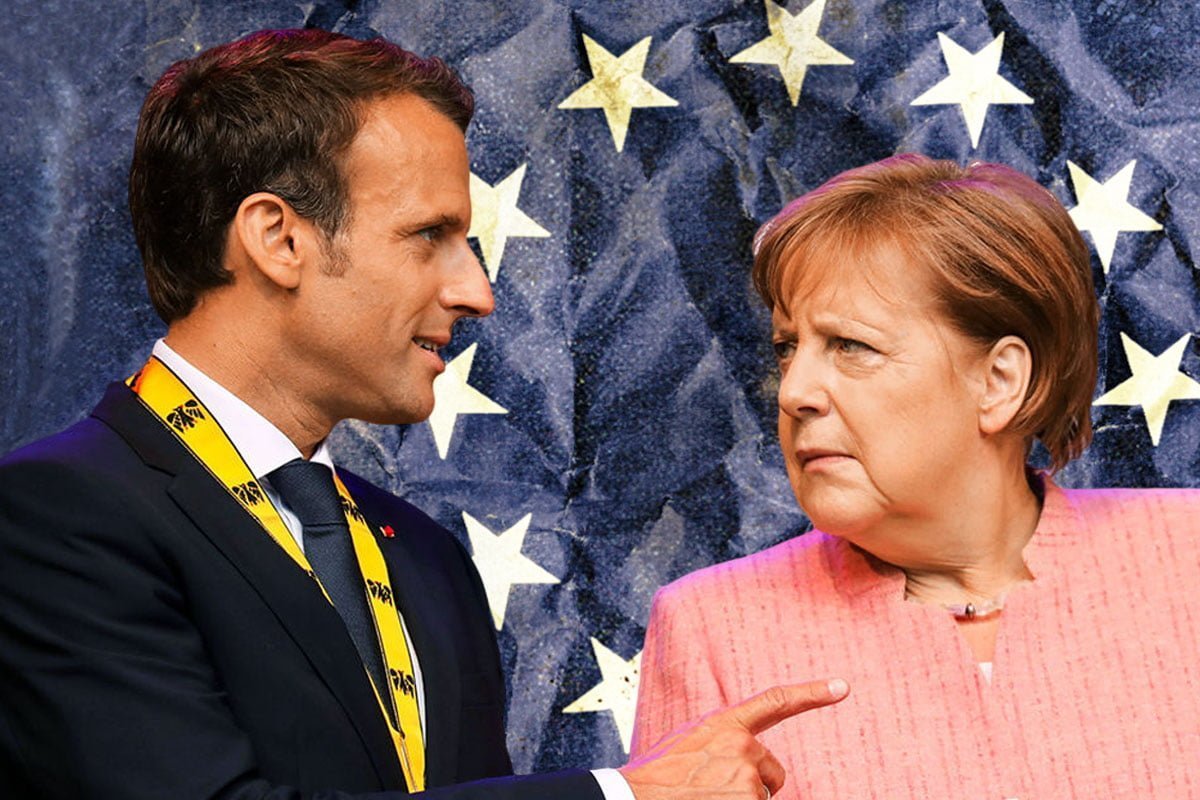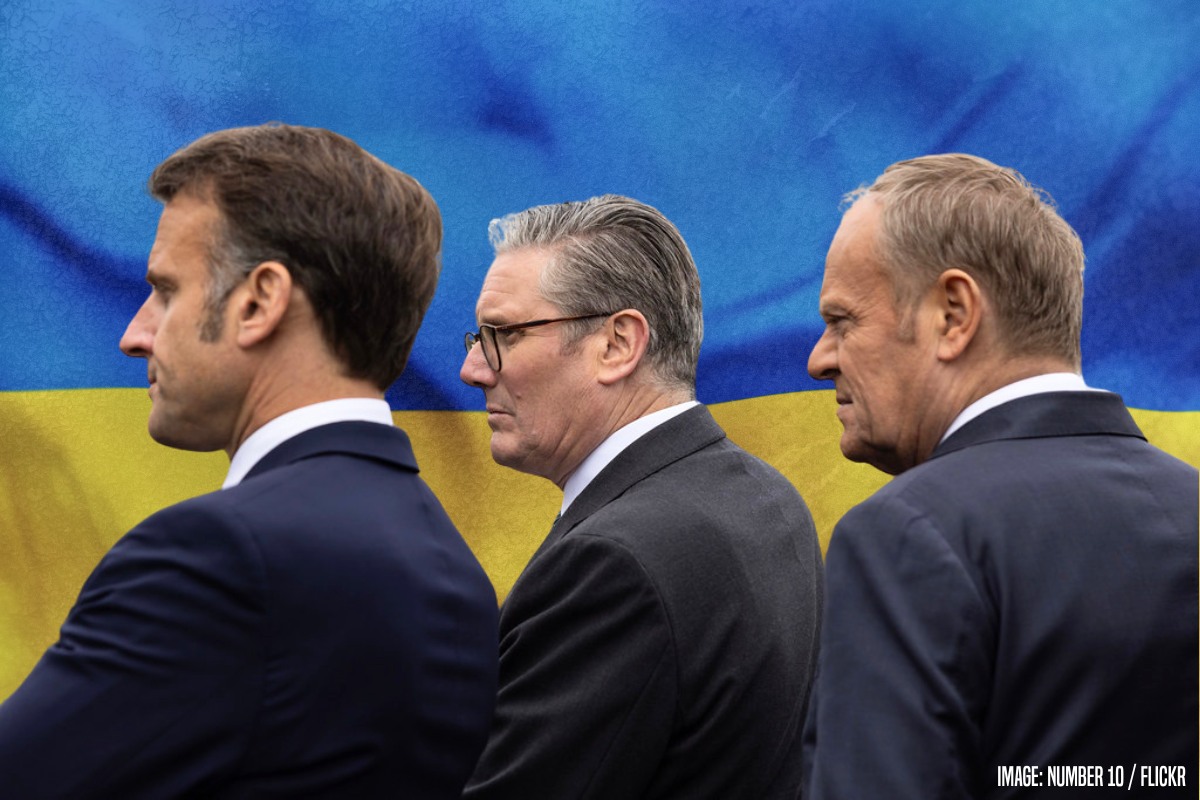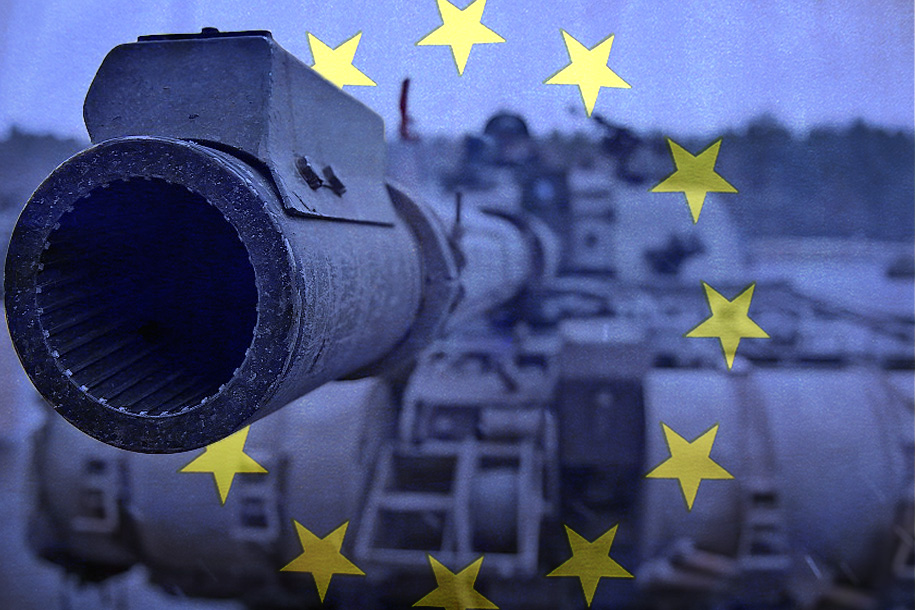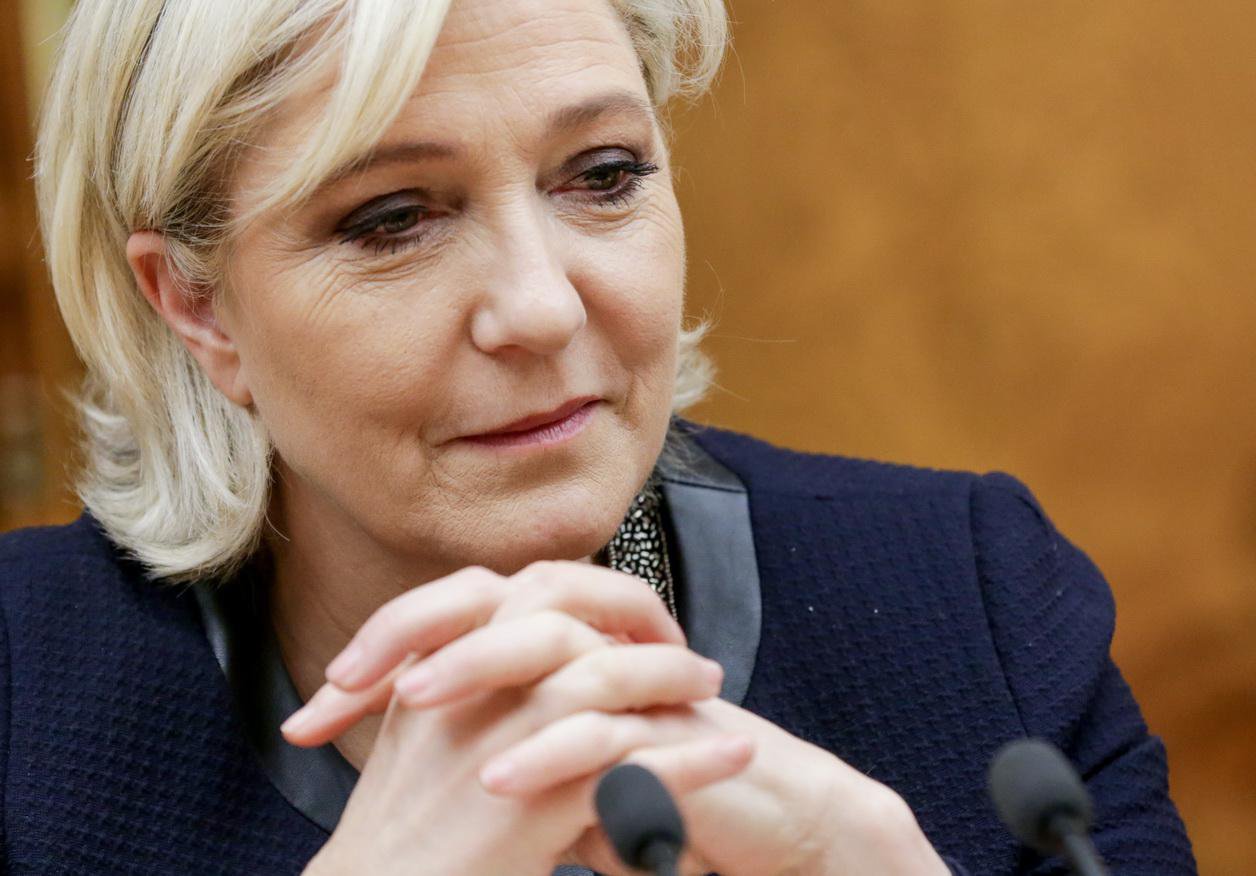The fragile fabric of the European project is being torn apart by a combo of political and economic forces. Liberal politicians are impotent to hold up the crumbling pillars of this failed status quo.
At the end of October, Angela Merkel announced that she will be stepping down as leader of the Christian Democrats (CDU), the ruling party in Germany. After 18 years at the head of her party, including 13 years as Chancellor, Merkel’s decision represents a new era of instability for Germany – and for the whole of Europe.
In the last general election, in 2017, Merkel received the lowest electoral support of her career with only 32.9% of the vote. Alongside this, she has faced a series of setbacks in recent regional elections. In the western state of Hesse, for example, the CDU’s vote fell by 11 percentage points in elections last month, prompting Merkel’s resignation announcement.
This comes at a time when the EU is facing an existential crisis on multiple fronts. Brexit is causing chaos on all sides. Millions of refugees and migrants are arriving at Europe’s shores (or being left to drown in the Mediterranean), trying to escape war and poverty. And the budget standoff between EU finance ministers and the Italian government is coming to a head, with Italy’s highly-indebted financial system reaching the point of collapse.
Until recently, the European crisis was thought to be confined to the economically weaker countries on the periphery of the EU: Greece, Spain, and Portugal. But now political, social, and economic crises are having an impact across the continent.
As the system bears down on the working class across the continent, fertile ground is being created upon which Eurosceptic parties are thriving. As the EU’s Brexit negotiator Michel Barnier recently noted, warning of the various threats facing the fragile European project, there is now “a Farage in every country”.
Merkel has seen this first-hand for herself, with the far-right Alternative for Germany (AfD) party syphoning votes away from the CDU, the traditional party of German capitalism. Simultaneously, the German Social Democrats, the SPD, have also haemorrhaged support, putting the “Grand Coalition” at risk of falling apart.
Meanwhile, Horst Seehofer, head of the CDU’s Bavarian sister party, the CSU, has followed Merkel recently in announcing his own resignation.
The end result is that Germany is left with a weak leadership precisely at a time when the ruling class – in Berlin and Brussels – is looking for ‘strong and stable’ government.
Merkel, Macron and the EU
 Into this vacuum has stepped Emmanuel Macron, the self-proclaimed “Jupitarean” President of France.
Into this vacuum has stepped Emmanuel Macron, the self-proclaimed “Jupitarean” President of France.
Since coming to power last year, Macron has placed himself firmly at the service of the European establishment, hoping to boost France’s role at the top of the EU.
France, however, is a declining power, and is clearly the junior partner in any Franco-German alliance at the centre of the European Union. In this regard, the French President has had to rely on Merkel’s support from day one in order to hold together the EU’s fraying fabric.
But facing troubles back home, Macron’s German counterpart has been distracted of late from the issues facing the rest of Europe. Merkel’s resignation announcement only confirms what was already quickly becoming apparent: nobody in Germany is going to help the French leader in his bid to save Europe.
Lamassoure, a French member of the European Parliament claimed that, “for Europe, this [Merkel’s imminent departure] is not good news”.
Problems at home
 Meanwhile, as he swans around trying to save European capitalism, problems are mounting for Macron back in France. A recent survey claimed, for example, that less than one-third of French citizens have a positive view of the President.
Meanwhile, as he swans around trying to save European capitalism, problems are mounting for Macron back in France. A recent survey claimed, for example, that less than one-third of French citizens have a positive view of the President.
This comes on the back of a difficult summer for the French leader. Macron has sought to fight battles on multiple fronts, taking on the unions and students in an attempt to boost French capitalism’s profitability.
But Macron has faced resistance to his attacks along the way. This has been reflected in a series of political setbacks and scandals for the French premier: from one of his key aides attacking a protester, to his environment minister stepping down, followed by the interior minister’s resignation. These have thrown the Macron government into a state of turmoil.
Ex-environment minister Hulot stepped down in late August, claiming that he “can’t lie to himself anymore” and that France is not doing enough to tackle climate change. This was followed by Collomb, the interior minister, who left his post on the claim that Macron was too arrogant.
Such criticisms of the French President are not new. For example, Macron recently told a job seeker to merely “cross the road to find work”. Elsewhere, he has accused African countries of being poor because women have too many babies.
The French leader has shown himself time and time again to be overly cocky, blinded by his own delusions of grandeur. Combined with his assault on the working class, this superior attitude is beginning to take its toll, riling French citizens. As the Financial Times noted recently, the French people have not seen the revolution they were promised, and are quickly realising that Macron is not their saviour.
Liberal delusion
 When Macron was elected last year, liberals everywhere proclaimed that a new era was opening up. In the wake of the Brexit vote and Trump’s victory in the USA, the liberal elite deluded themselves into believing that the centre ground had re-established a stable position for itself.
When Macron was elected last year, liberals everywhere proclaimed that a new era was opening up. In the wake of the Brexit vote and Trump’s victory in the USA, the liberal elite deluded themselves into believing that the centre ground had re-established a stable position for itself.
But with Merkel going and problems mounting in France, it is clear that these hopes were nothing more than a utopian pipe-dream. Macron is finding himself increasingly isolated and impotent. And as political polarisation increases, there are fewer allies in the centre for him to turn to.
The President’s fall from grace has been rapid, demonstrating the weak position the European establishment finds itself in, unable to offer ordinary people anything but austerity and attacks. The working class are tired of liberal politicians’ empty claims, with nothing ever really changing. Indeed, as the old French saying goes: “Plus ça change, plus c’est la même chose.” (The more things change, the more they stay the same.)
Unreformable
 So now that he has lost his “indispensable partner”, as the Financial Times described Merkel, where can Macron go from here?
So now that he has lost his “indispensable partner”, as the Financial Times described Merkel, where can Macron go from here?
The French President is hoping that the CDU will elect a new leader who he can work with in his goal of saving the EU; that this will just be ‘a changing of the guard’, and that he will still be able to carry out his ‘reforms’ to Europe’s institutions.
But the problems facing the European Union cannot be reformed away. In the final analysis, they arise from the crisis of capitalism and the limits of the nation state. At most, therefore, Macron’s proposals will be a mere sticking plaster over the huge cracks that are opening up across the board for the European establishment.
Huge swathes of ordinary people are turning against the EU because it has done nothing for them. Their anger comes from the failure of the European project to address real problems, such as unemployment and low pay. Indeed, for many workers and youth, the European Union – a capitalist club – has rightly become synonymous with austerity and attacks.
Whether Macron finds another ally in Berlin or not, people are increasingly turning their backs on the failed policies of the liberal centre ground, refusing to accept capitalism’s broken status quo. Whoever heads up the Franco-German alliance at the centre of the EU will not be able to hold back this tide.
Capitalism is crumbling
 The ruling class hope that Macron can strengthen his position, unite Europe, and quell the anger that is bubbling to the surface. But it is becoming increasingly obvious that the opposite process is taking place. Social unrest across Europe – and worldwide – is becoming more acute everyday as capitalist politicians like Macron show their inability to do anything but attack the working class.
The ruling class hope that Macron can strengthen his position, unite Europe, and quell the anger that is bubbling to the surface. But it is becoming increasingly obvious that the opposite process is taking place. Social unrest across Europe – and worldwide – is becoming more acute everyday as capitalist politicians like Macron show their inability to do anything but attack the working class.
The establishment everywhere therefore finds itself in turmoil. Macron is trying to be the saviour of a system that cannot be saved. His failures are quickly becoming apparent, as the pedestal that he was placed upon by the liberal elite is ripped from underneath him.
From the fresh face of Macron to the experienced hand of Merkel: no political representative of the capitalist class can avoid the impacts of the system’s collapse. Political earthquakes are shaking one country after another, leaving all the pillars of the old order crumbling around the ruling class. Only socialism offers a way out.






